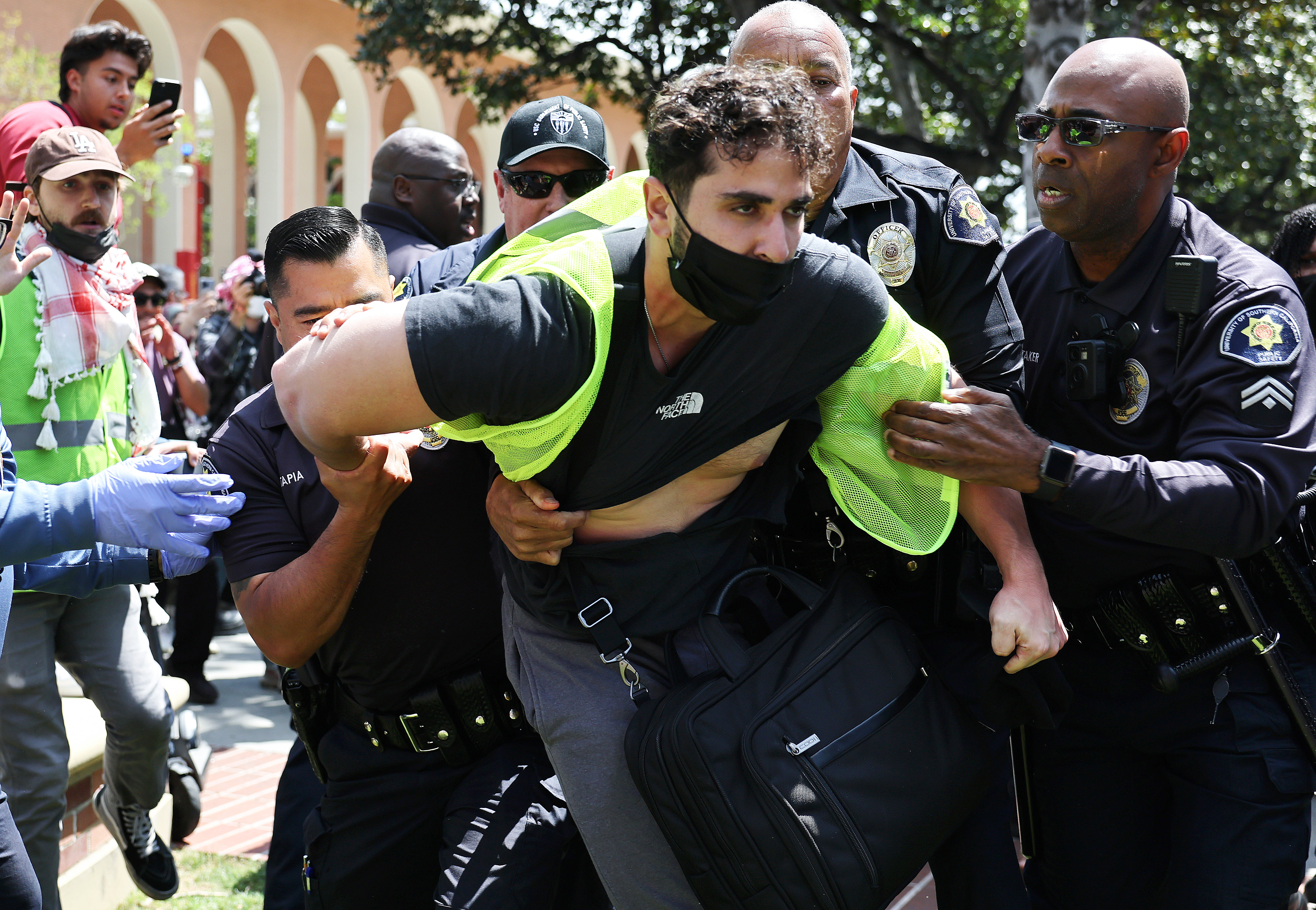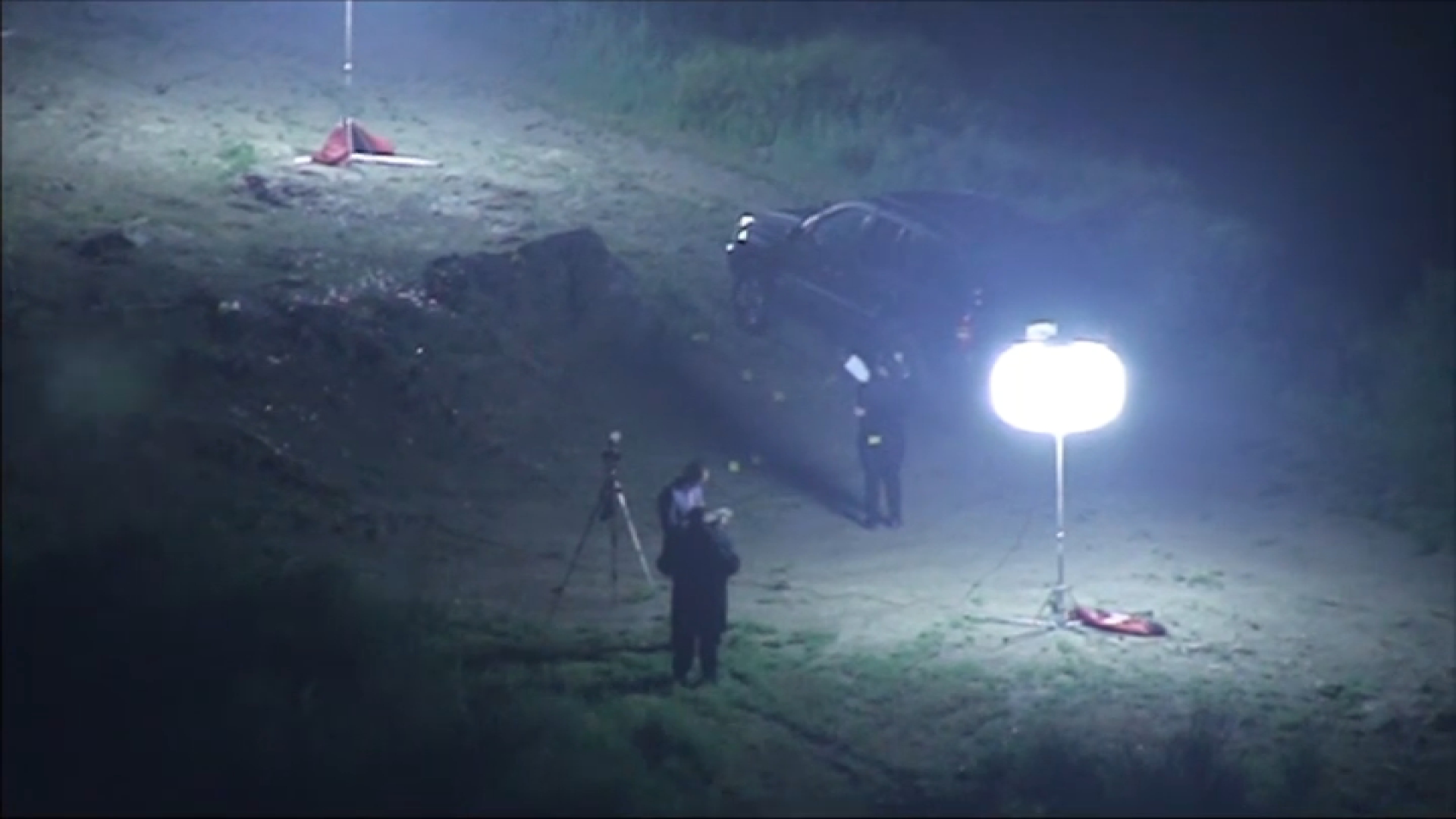Deep in their grieving over the untimely death of physician and marathon runner Frank Meza, his family decried and rejected the accusations of cheating in races that overwhelmed him during the final weeks of his life.
"They took away the one thing that was his pride," said widow Tina Meza, also a medical doctor. "Because he loved to run."
In March at the Los Angeles Marathon, the 70-year-old had set a record time for his age group, 2:53:10. Under three hours is considered a remarkable achievement even for younger experienced runners.
Allegations surfaced online that he had cheated, and the website MarathonInvestigation.com found uneven split times, and evidence he left the course, questioning whether he did so to shorten the distance. The issue reached mainstream media last week in an article in the Los Angeles Times. Days later, LA Marathon officials disallowed Meza's time.
Thursday morning, Frank Meza left his South Pasadena home on a run, but never returned. In the Los Angeles River near a bridge, his body was found by authorities responding to a call of a possible jumper.
"He had enough," said Tina Meza. "He was shamed publicly for something he absolutely loved."
Tina Meza was at times in tears Friday as she, daughter Lorena Meza, a registered nurse, and daughter-in-law Sara Tartof, Ph.D., spoke with NBCLA of their concerns that his accomplishments — running and in the rest of his life — might be obscured in the swirl of controversy that had arisen.
News
Top news of the day
"All his life was in service of others," said Tina Meza, who recounted his cofounding a low cost health care clinic, his care for patients, his cofounding the Aztlan Track Club, coaching at Loyola High School, and involvement in other projects mentoring youth and nurturing future physicians.
Family members denied he had ever taken shortcuts or cheated during his sub-three hour marathons. Meza's daughter said he told her what prompted him to leave the LA Marathon course was urgent need for a restroom when none was nearby, and having to go a ways to find one, came back to the course at a different point.
"I know it's fast, but he did it. He really did it," said Tartof. "You don't understand how it can be done until you run with him."
Friday, Marathon Investigation expressed sadness in a posted statement from Derek Murphy.
"My heart goes out to his family and friends," Murphy stated. "There will be time for comment and public discussion, but at this point, I feel that we should allow those close to Frank the space to grieve."
The Meza family lamented that relief from the torrent of accusations had not come when he was still alive.
"They were so vicious in their online attacks," said Lorena Meza.
"I didn't know you could really destroy people like that," said Tina Meza.
"I know he didn't cheat. I'm telling you I know he didn't. But even if he did, it's gone so beyond this,” said Tartof. "I don't understand the motivation behind the vitriol."
Frank Meza had continued to run throughout his medical career at Kaiser Permanente, often coming to work with running shorts under his clinic clothing to get in a few miles during the lunch hour, the family recalled.
In recent years, after he semiretired, he had been able to devote more time to roadwork, and began tackling longer distances and entering marathons, completing well more than 50, they estimated.
Even as the controversy over his LA Marathon time was swirling, Frank Meza faced additional pressure from a newly developed health issue, his family disclosed.
It arose, they said, even as he was planning to debunk the skepticism over his sub-three hour marathons by inviting a chaperon and video camera to accompany him in his next race.
But during a training run in May in Debs park with his daughter-in-law, he began perspiring excessively, his heart racing, and he called to her, she said. He got off the trail with difficulty, and later was diagnosed with a ruptured chordae tending, a connective tissue in the heart.
He faced open-heart surgery, and the likelihood his athletic level of cardiovascular conditioning would never return, said Tina Meza. A sub-three hour marathon to disarm his detractors would be out of the question.
He continued to run, but shorter distances and at a slower pace.
"Good for him," Tina Meza recalled thinking when he went out the door Thursday morning to run, having no way of knowing he would not come back alive.



